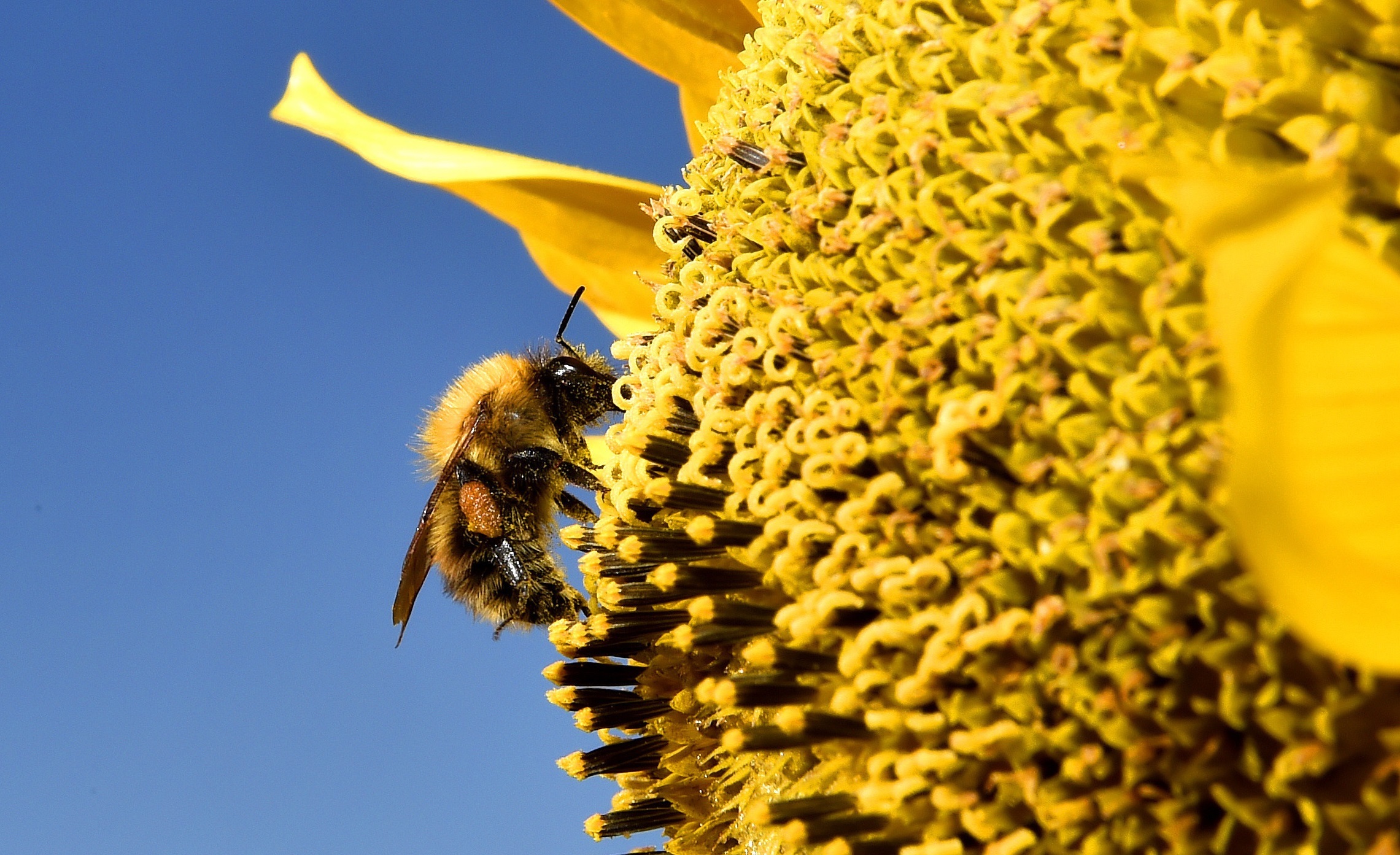
GARDENERS are being urged to take simple steps such as cutting the grass less often and growing more nectar-rich flowers as part of efforts to help bees.
Despite concerns about the plight of bees in the UK, with many species in decline, more than half (57%) of 1,717 people polled by YouGov admitted they had not done anything to provide pollinating insects with food or homes in the past year.
Now householders are being encouraged to take five steps to help bees, whose pollinating services are worth £600 million a year in boosting yields and the quality of seeds and fruits.
People can grow more flowers, shrubs and trees that are rich in nectar and pollen, leave patches of land to grow wild, cut grass less often, avoid disturbing or destroying nesting or hibernating insects and think carefully about whether to use pesticides.
And schoolchildren are being given a summer holiday challenge to build “bee hotels” out of simple items such as bamboo, plastic drinks bottles and string, to give solitary bees a home.
The call has been made ahead of “bees’ needs week”, part of the national pollinator strategy in 2014 by the Department for Environment, Food and Rural Affairs (Defra) in partnership with charities, businesses and academic institutions.
Defra’s Lords spokesman, Lord Gardiner of Kimble, said: “It is clear we care about bees – now we need to make sure we translate that concern into real action to protect our precious pollinators.
“Everyone can play their part to ensure bees have food and a home, from urban window box gardeners to farmers protecting the wildlife around their fields.”
Paul de Zylva, senior campaigner at Friends of the Earth, said: “You don’t need to keep bees to be a bee-keeper.
“At home, in your street, at work or at school, you can help the 250 or more different types of bee by growing the right plants, improving local spaces for pollinators and avoiding pesticides.
“Simple actions can make sure we are the generation to save Britain’s bees.”
READ MORE
In Your Garden: Question Time panellists dig deep for fruity questions
Farmers urged to wild plants with their fruit crops to boost flagging bee numbers

Enjoy the convenience of having The Sunday Post delivered as a digital ePaper straight to your smartphone, tablet or computer.
Subscribe for only £5.49 a month and enjoy all the benefits of the printed paper as a digital replica.
Subscribe